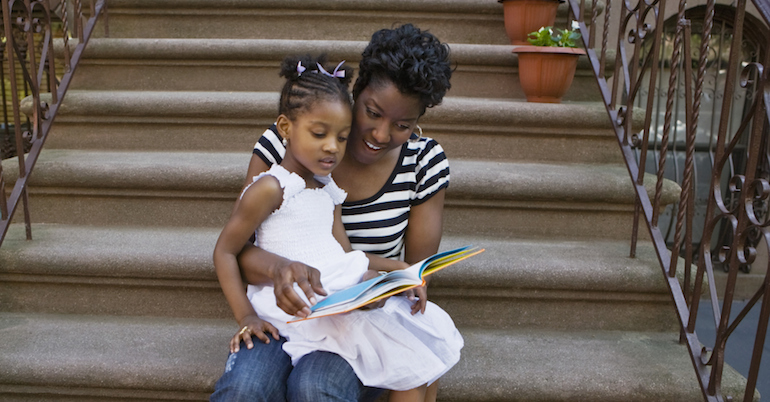My daughter, who will be six in July, is struggling in school, and her teacher is suggesting that she repeat kindergarten. She is capable of doing the work, but needs more one-on-one attention than other children and shows a lack of confidence. She is not an initiator, but neither is she isolated or withdrawn. The teacher feels that another year will improve her maturity and confidence and allow her to be a stronger student.
It hurts my heart to see our daughter struggle this way. Any guidance you can share will be very much appreciated.
First, I am wondering how to tell our daughter, since she is so excited about first grade. She will see her friends moving up without her.
I am also grappling with thoughts that nature, not nurture, might be the root of this problem. Could it be a question of heredity? It is just so difficult to accept that my daughter did not inherit my or my husband’s ability to learn. Has anyone else grappled with this?
Finally, I never told the teacher that our daughter was adopted; do you think I should mention it now?
—Lina Fedynyshyn
San Diego, CA
Eight years ago we made the decision to hold our daughter, whose birthday is in September, out of first grade an extra year, mainly because she had commented on how much better some of the other kids could read.
We looked around for a private, one-year, pre-first-grade program and were fortunate to find an excellent one. It provided her with her happiest and most productive year of school yet. When she returned to our neighborhood public school after her year away, she came with bolstered skills and confidence. Now, in middle school, she’s on the honor roll in gifted and talented classes, something I don’t think would have happened without that extra year.
When I mentioned this article, she urged me to say how good the extra year was for her. For the first time she described being in kindergarten and almost knowing the answer but not quite getting it before someone else said it — and how that stopped being an issue for her in her pre-first grade year.
-Laurel Strassberger
Baltimore, MD
Our son goes to an excellent private school. We didn’t know this at first, but many people in private schools delay their kids, particularly boys. So at age five — his birthday is in August — he started kindergarten with kids from three to 17 months older than he. A month into his second kindergarten year, we knew it was the right decision. He had a great year and grew tremendously.
However, he’s never quite forgiven us. My husband’s sure that someday our son’s business card will say, “I should be a year further than I am because my parents made me stay back.” But that’s him. I know other kids whose second years seem to roll right off of them.
Kids develop differently, and not just because of intellectual limitations. Adoption is a huge thing for a little kid to deal with. When we were making our decision, a lot of parents told us that they’d never regretted giving their child a second year in an early grade.
-Carrie Kent
Somerville, MA
I had a similar situation with my son (not adopted). He felt I let him down by agreeing with the school. In retrospect, it was not worth it. If your daughter is excited about first grade, I’d say let her go, and try to get extra help.
The question of heredity and intelligence is complicated. My brother and I, both biological children of our parents, were always very different. My brother claims he never read a book that wasn’t forced on him, and I read all the time, as did both of our parents. Neither of us were good at math, yet my brother’s kids are all in gifted math classes. We have to enjoy our children for themselves, whatever their gifts or deficiencies.
-Mary Anne Cohen
Whippany, NJ
I believe that it is important to tell teachers that our children were adopted. In order for my son to feel accepted, other people should know as much about him as they can. Adoption is a big part of our lives. Keeping it a secret from people who spend most of the day with our children feels like a lie to me. And it sends my children the wrong message. My son is comfortable with his place in the world and how he came into our lives. He loves explaining it.
-Erin Farrar
Portland, OR
Recognize Areas of Excellence
Been there, done that! My daughter wasn’t retained until sixth grade. Because she was in an alternative school, and the benchmarks were less clear, I couldn’t accept it at first. But I did realize, in the end, that staying back was the best thing for my daughter. In fact, I wish we’d done it sooner.
If you’re concerned about teasing from other kids, perhaps it would be best for your daughter to repeat kindergarten elsewhere, then return to the school of your choice when she enters first grade. By that time, other children will be likely to have forgotten that she was once in their class; friendship groups will have shifted many times during the interceding year.
I know just what you mean when you say you wrestle with nature/nurture. I discuss this often with a fellow adoptive mom. As she once said, “I never thought about the kids at the bottom of the learning curve when I was in school — they simply made me look good. Now I see my child down there, and it hurts.”
I’ve learned to readjust my goals for my daughter, from going to the best college to going a four year college to going to community college. As she’s matured academically, my daughter’s goals for herself have risen, and I believe she will have an excellent life as an adult. I will support her in any way I can.
As for telling the teacher about your daughter’s adoptive status, I wouldn’t — unless it has some specific relevance (e.g., a birth parent has diagnosed learning disabilities your daughter might have inherited). Some schools do label adoptees.
Believe in her, believe in yourself, and make a concerted effort to recognize the areas in which she excels. Look at books on multiple intelligences (Howard Gardner’s theories). Academic settings usually value only two or three of the many intelligences individuals possess.
-Sherry Beauchamp
Seattle, WA



